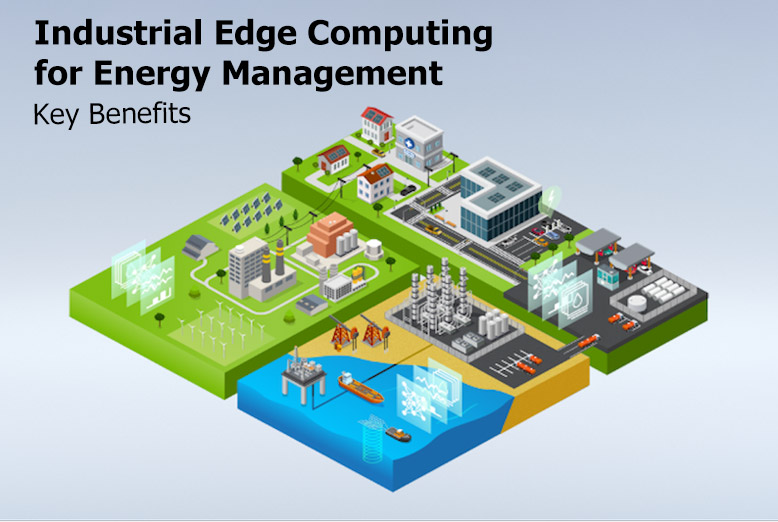Across industries, monitoring meters and reports is no longer enough. Every second of downtime or inefficiency can result in significant financial loss. That’s why smarter systems are becoming essential. Advanced solutions now ensure faster responses, reliable performance, and sustainable results, setting a new benchmark in modern energy management practices.
One of the most significant innovations supporting this transformation is the integration of industrial edge computing. By bringing computing power closer to energy equipment, plants, and devices, organizations can achieve faster decision-making, improved performance, and sustainable results.
A Shift Toward Smarter Energy Systems
Traditional energy management relied on centralized data centers, where information from electrical instruments and devices was collected and processed. While effective, this method often involved latency, bandwidth concerns, and delays in actionable insights. Edge computing alters this model by allowing data processing to take place right at the source, whether it is a smart meter, a transformer, or any industrial equipment deployed on-site.
With industrial edge computing integration, industries can process and analyze information locally, enabling real-time adjustments that improve efficiency. This shift is especially crucial in sectors where energy loads are dynamic, and quick responses can prevent system failures or excessive costs.
Key Benefits of Industrial Edge Computing in Energy Management
Some of the key benefits are:
- Real-time Monitoring and Control
Energy systems generate massive amounts of data through electrical instruments, sensors, and devices. Edge computing ensures this data is not just collected but also analyzed instantly. Operators can employ predictive models and automated responses to adjust voltage, monitor frequency, or detect abnormalities without waiting for cloud systems to react. This level of control minimizes downtime and supports uninterrupted operations.
- Enhanced Reliability and Security
When industries depend solely on centralized data systems, disruptions in connectivity can compromise efficiency. By incorporating edge computing, critical operations continue unaffected, even during network interruptions. Moreover, localized data processing strengthens security, as sensitive information remains within the facility rather than constantly traveling to external servers. This makes energy systems more resilient against cyber threats.
- Optimized Energy Efficiency
One of the central objectives of energy management is reducing waste while maximizing performance. Through industrial edge computing integration, equipment and devices can be fine-tuned in real-time. For example, edge-enabled controllers can adjust energy loads during peak demand or manage backup systems more effectively. Such measures not only save costs but also contribute to sustainability goals.
- Scalability and Flexibility
Industrial operations often expand or shift focus, requiring adaptable energy systems. Edge computing supports this by allowing the seamless addition of new instruments, devices, and applications without overburdening central servers. Organizations can deploy tailored solutions for specific equipment, making scaling less complicated and more cost-effective.
- Predictive Maintenance of Equipment
Unplanned breakdowns in electrical equipment can be costly. Edge computing enables predictive maintenance by employing algorithms that track wear, detect irregular patterns, and provide early warnings. This proactive approach extends the life of devices, minimizes repair costs, and ensures smoother energy management.
- Reduced Bandwidth and Storage Costs
Transmitting all data to a central server consumes significant bandwidth and storage resources. Edge computing reduces this load by processing essential information locally and only sending relevant summaries to the cloud. The result is lower operational costs without compromising analytical depth.
The Role of Industrial Edge Computing in Sustainability
Sustainability has become a cornerstone for industries worldwide, and energy management lies at the heart of this mission. Edge computing assists in achieving eco-friendly objectives by enabling real-time decisions that cut unnecessary energy use. By deploying localized computing power, companies can incorporate renewable sources more efficiently, balance demand and supply, and ensure compliance with evolving environmental regulations.
For example, facilities equipped with edge-enabled devices can automatically shift to solar or backup storage during peak hours, reducing strain on the main grid. This ability to manage resources dynamically leads to greener operations and stronger compliance with sustainability standards.
Partnering with Reputable Energy Brands
Although deploying new systems and equipment is essential, the benefits multiply when organizations partner with reputable energy brands. Trusted providers bring proven expertise, reliable devices, and tested methodologies that ensure smooth integration of edge technologies. They also help businesses incorporate best practices, safeguard investments, and deploy solutions that align with both operational goals and regulatory requirements.
In essence, choosing the right partners allows industries to not only employ cutting-edge energy solutions but also secure long-term value. With the right collaboration, the journey toward smarter, more sustainable energy management becomes both achievable and rewarding.
Also Read: Revolutionizing Industrial Operations with Advanced Electrical Systems







